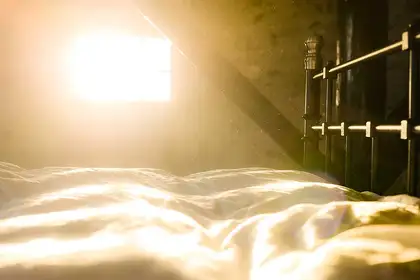
Daylight saving takes effect at 2am this Sunday when clocks go forward an hour.
It’s that time of year again, when our clocks go forward an hour, the mornings plunge back into darkness, and insomnia ensues. For many, the welcome sunny evenings are plagued by restless nights and lost sleep.
Dr Karyn O’Keeffe, a senior research officer at Massey University’s Sleep/Wake Research Centre, says even though the amount of sleep lost during the daylight saving change seems small, it can have a big impact on our safety, health and productivity.
“Studies have shown that in the days following the change to daylight saving time sleep is shorter, we are sleepier, we might experience negative mood changes, and accident and injury rates increase,” Dr O’Keeffe says. “Some studies have also shown an increase in the number of motor vehicle accidents.
“Daylight saving challenges your internal timekeeper, the circadian body clock, because suddenly your internal body clock time and the external time of the sun are no longer aligned. Your body clock does not immediately shift following the change to daylight saving time, so it can take a few days for it to adjust and your body to recover.”

Dr Karyn O'Keeffe, Sleep/Wake Research Centre.
Daylight saving takes effect at 2am on September 29 when clocks go forward an hour.
“Springing forward is harder than falling back in time,” Dr O’Keeffe says. “It’s easier for most people to fall asleep and wake up later than it is to fall asleep and wake up earlier each day. It will likely be harder for night-owls to adjust, which means it can be tough on teenagers and young adults.”
Here are some tips:
- Try to get a lot of natural sunlight exposure when you first wake up in the morning
- Avoid bright lights in the evening, particularly in the two hours before bed, including light from televisions, computers, and mobile devices
- Avoid caffeine in the afternoon and evening
- Don’t use alcohol as a sleep aid
- Give yourself extra time for travel – a lot of sleepy drivers on the road is never a good thing
- Bring your bedtime and wake-up times forward by 20 minutes on Friday night, 20 minutes earlier again on Saturday night, and go to bed at your usual time on Sunday night